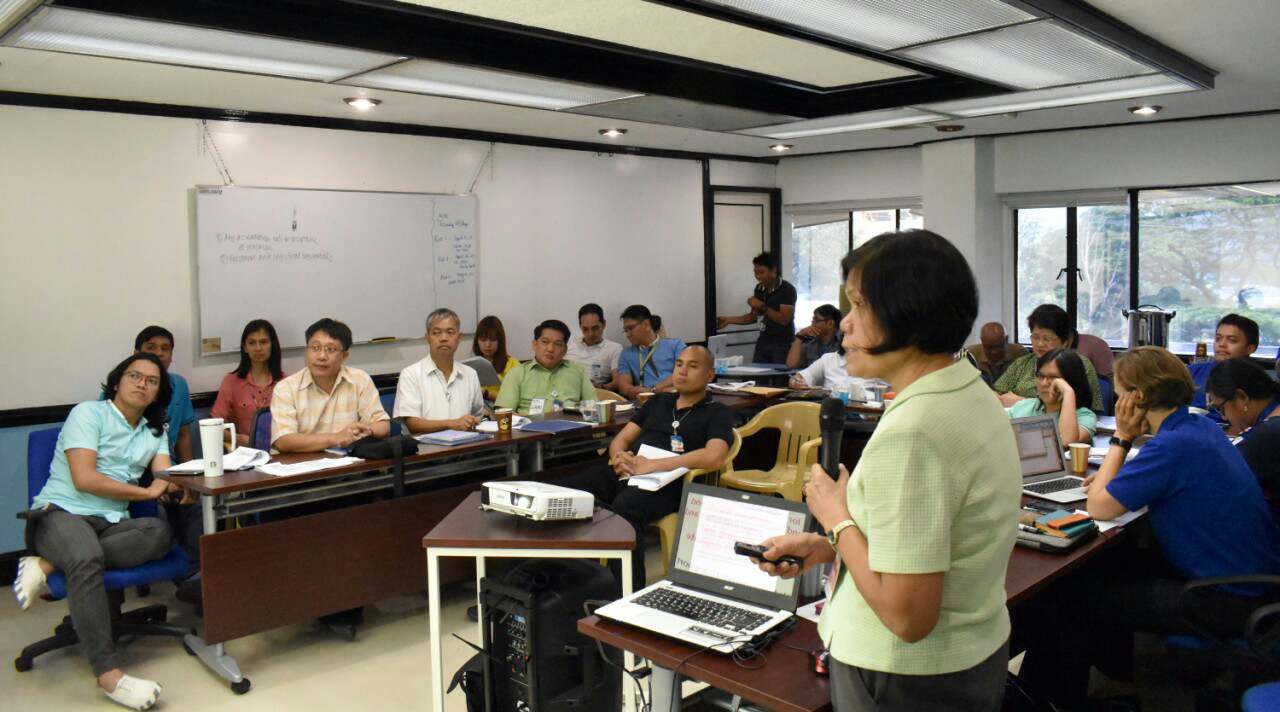
ESTABLISHING EFFECTIVE MONITORING-VERIFICATION-ENFORCEMENT: Department of Energy (DOE) employees listen intently as Philippine Metrology, Standards, Testing and Quality, Incorporated (PhilMSTQ) President Cirila Sescon Botor conducts an orientation on ISO/IEC: 17020:2012 and ISO 9001 during the three-day DOE workshop setting the proper requirements to help outsourced inspection bodies in monitoring, verification, and enforcement (MVE) effectively.
(Taguig City). The Department of Energy (DOE) collaborated with the European Union-Access to Sustainable Energy Programme (EU-ASEP) for a three-day intensive training to ensure the quality of energy infrastructures in the country.
The training-workshop began last Wednesday (11 April) and ended on Friday (13 April). The first day of the workshop was conducted at the F1 Hotel in Bonifacio Global City while the second and third days were at the Department of Energy's headquarters.
It focused on the Philippine National Quality Infrastructure (PNQI), which enables the development and compliance of the government agencies, specifically the DOE, with the increasing quality requirements in the energy industry. PNQI provides support to the national authorities in performing their mandates for consumer protection, free trade, environmental protection and other societal objectives.
“This will help build the capacity of the DOE to promote energy efficiency through monitoring, verifying and enforcing,” said DOE Assistant Secretary Robert Uy during his opening remarks who also acknowledged EU’s assistance in promoting PNQI awareness and knowledge.
The DOE-EU-ASEP partnership aims to provide the DOE with a working knowledge of the internationally-recognized standards and processes in the energy sector. This will also increase knowledge and appreciation on the PNQI benefits among government decision makers, legislators, regulators, industry and consumers.
The event tackled the standards issued by the International Organization for Standardization (ISO) and the joint committee of ISO/International Electrotechnical Commission (IEC) that will be applied for the PNQI, namely, ISO/IEC 17020:2012 and ISO 9001.
ISO/IEC 17020:2012 sets out the criteria for the operation of various types of bodies performing inspection. ISO 9001, on the other hand, specifies requirements for quality management systems.
The workshop also discussed the main elements of national quality infrastructure including: metrology, standardization and accreditation to guarantee up-to-standards energy infrastructures. By definition, metrology is the guarantee of exact and reliable measurements; standardization is the description of properties, dimension, tolerance and other characteristics of products; and accreditation is the recognition of the product’s technical competence.
With the PNQI training, the DOE is enable to improve its guidelines in recognizing outsourced inspection bodies to better perform monitoring, verification and enforcement (MVE) of products and services.
Specifically, the DOE officials and staff were able to go through all of the requirements within ISO/IEC 17020:2012 and ISO 9001. With this, the DOE were able to plan the criteria that are going to applicable in properly setting the guidelines for MVEs.
As a result, the guidelines will initially be focusing on appliances, namely lighting, refrigeration and air conditioning, then will be branching out to other energy products and services.
Beyond the training, the DOE aims to benefit the consumers by ensuring that the services or products are safe and conforming to the quality standards.
Present during the training are the officials and staff of the DOE and EU-ASEP and the academe.
###
